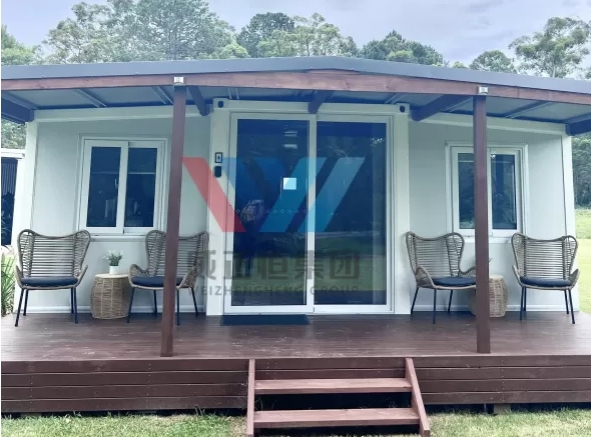Are Expandable Container Houses Eco-Friendly and Sustainable?
In an era of growing awareness of environmental issues and a desire for more sustainable living options, expandable container homes are gaining popularity as an innovative and environmentally friendly housing solution. This blog post explores key aspects of their sustainability, shedding light on why they are considered an environmentally responsible alternative.

1. Sustainable materials
Expandable container homes are typically constructed using modified steel containers. These containers are long-lasting and durable, reducing the need for new materials in construction. The sustainable use of this material reduces the impact on the environment as it minimises resource consumption and waste.
2. Energy efficiency
Insulation and temperature control
One of the advantages of containerised housing is its high level of insulation. Properly insulated containers are energy efficient and require less heating and cooling. This helps homeowners save on energy costs while reducing their carbon footprint.
Solar Panel Integration
Expandable container homes usually have solar panels on the roof. Solar panels utilise the sun's renewable energy, which not only reduces electricity bills, but also reduces dependence on fossil fuels, thus helping to create a cleaner environment.
3. Reduced land use
Expandable container homes can be stacked or expanded upwards, which means they can accommodate more people in a smaller footprint. Reduced land use helps preserve natural landscapes and open spaces, making them a sustainable option for those concerned about urban sprawl and land conservation.
4. Water use efficiency
Sustainable Plumbing
Many expandable container homes are equipped with sustainable plumbing systems, including low-flow fixtures and grey water recycling. These features reduce water usage and help conserve water.
5. Recycling and reuse
Easy Relocation
One of the unique features of expandable container homes is their mobility. Since they are built on foundations, they can be transported to different locations. This reusability minimises the need for new construction and can significantly reduce the environmental impact associated with conventional housing.
Recyclable materials
Steel containers can be recycled if the container house is no longer needed. Steel is one of the most widely recycled materials and the recycling process requires the least amount of energy. This ensures that even at the end of its life cycle, the container house leaves a minimal environmental footprint.
6. Minimising construction waste
Conventional construction often generates large amounts of waste. In contrast, expandable container homes are built primarily in a controlled factory environment, which greatly reduces construction waste. This streamlined construction process minimises the environmental impact of waste disposal.
7. Eco-friendly design options
Container houses can be designed with sustainability in mind. Architects and builders can employ eco-friendly features such as rainwater harvesting systems, green roofs and energy efficient windows. These design options enhance the overall sustainability of the container house.
8. Low carbon footprint
Due to their energy-efficient nature and use of recycled materials, expandable container homes tend to have a lower carbon footprint compared to traditional homes. This makes them a responsible choice for individuals seeking to reduce their impact on the environment.
Conclusion
With a focus on material reuse, energy efficiency and reduced land use, expandable container homes offer a truly sustainable and environmentally friendly housing option. Their innovative design, mobility and adaptability make them an attractive option for those seeking a more environmentally responsible lifestyle. As the world continues to seek greener alternatives in all aspects of life, expandable container homes become compelling examples of sustainable and eco-conscious living.Discover top-quality luxury expandable container homes at WZH Group, the leading factory with 10 years of expertise in the USA and Australia standards.

Comments
0